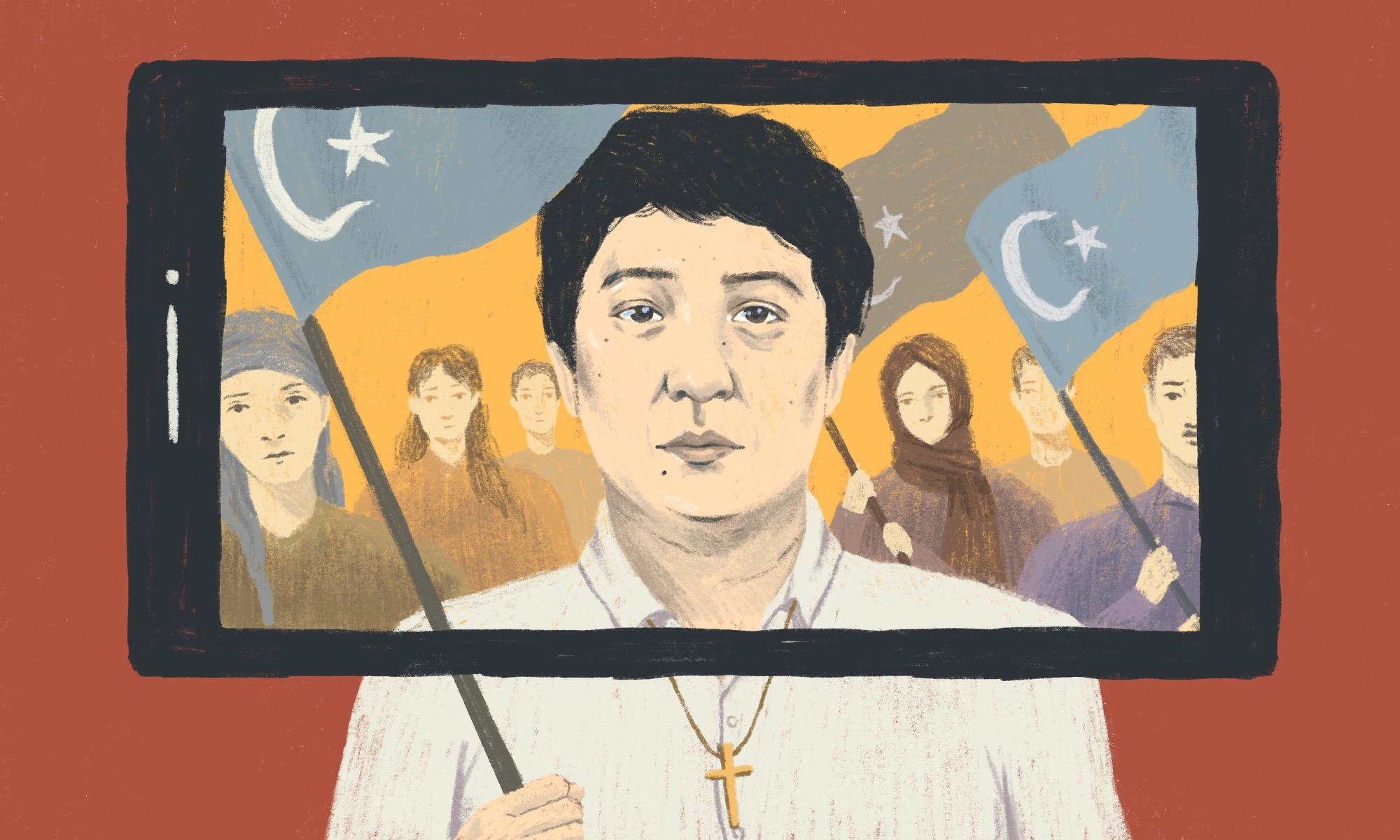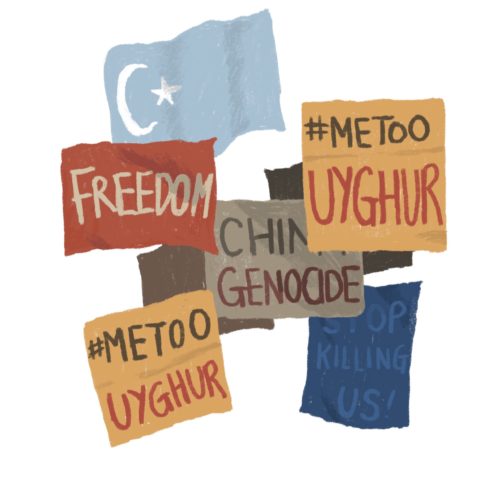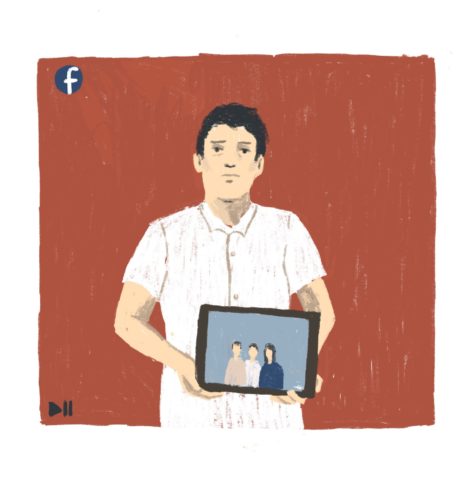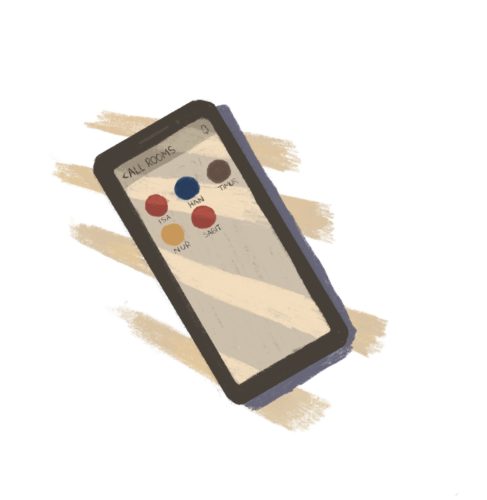Heretic, separatist, traitor: Uyghur activist Halmurat Harri’s in-between life
Few people have done as much as Halmurat Harri, the activist behind the #MeTooUyghur movement, to raise awareness globally of the suffering of Uyghurs in Xinjiang. But Harri's approach has made him a controversial figure among fellow activists.

“Even th[r]ough small actions we can do big things. Our small actions can cause the Chinese government to correct its incorrect policies, to see the Uyghur people as a real society and culture that deserves to be respected.”
—Halmurat Harri

March 2. The clock was ticking. It was approaching 9 p.m., and Halmurat Harri, a Uyghur and naturalized Finnish citizen, was sitting in the sauna room inside a cabin near the Finnish port city of Turku. His phone was ready.
A few days earlier, he had publicized a Clubhouse chat that he would be hosting to allow Uyghurs in Europe share their stories. He’s moderated and initiated dozens of chat rooms related to Xinjiang on the Clubhouse app, where he has more than 8,000 followers, but he was particularly nervous about this one. This would be his first Finnish-language room, an attempt to let the Finnish public understand the situation in Xinjiang. Just don’t make stupid mistakes so no one will laugh at me, he told himself as the event began.
Harri’s profile on Clubhouse is long, revealing that he is a Uyghur, Christian, son of concentration camp survivors, founder of the #MeTooUyghur movement, and frequent contributor and source on Western media platforms, in 32 different languages. What he doesn’t say is that he used to write poetry, and that if it was up to him, he wouldn’t be an activist. “I have never wanted to be special,” he wrote last year for PEN Sweden. “I had never had an ambition to become an activist, defender of human rights, I have been taught to keep a distance from politics, so I would have a safe and peaceful life.”
The disappearance of his parents in 2017 and 2018 changed all that. They have since been released, but Harri continues to campaign for the untold thousands still being held in extralegal camps around Xinjiang.
Despite all his labels, however, Harri remains hard to categorize. He stands apart for his stated disinterest in politics. In his Finnish Clubhouse chat, he stipulated that there would be zero political analysis. “[Political analysis] feels like someone chewing something for you and putting it in your mouth,” Harri says. “So, we don’t want analysts. We want real stories.” Telling and listening to stories creates pathways for empathy.
Harri’s “story-only” approach has been controversial. In China, he is considered a separatist, but within the Uyghur activist community, he is sometimes viewed as an outsider: a Christian who doesn’t share the same values as others within the protest movement. No matter how many identities Harri claims, deep down he considers himself an “in-betweener” who doesn’t belong to any one group.
“Belonging is something different,” he says. “You’re part of this group, always, but at the same time, you’re not.”
Born and raised in Turpan, Xinjiang, Harri, now 36, regards himself as a regular Christian with a regular family. Sitting in a cabin in Finland more than a decade after leaving Xinjiang, he fondly remembers the old days in his hometown, moments such as drinking alcohol with his father during summertime parties.
In 2003, after graduating from Northwest Minzu University, where he studied medicine, he interned at a hospital in Urumqi. As a man who loved talking to different people, he enjoyed lingering at Fubar, a popular pub. There, he became friends with a group of foreigners. They hung out, had coffee, chatted about almost everything. Now, looking back, Harri wonders whether this friend circle of his aroused authorities’ suspicion.
One day at the beginning of 2008, after returning to his apartment after a long shift at the hospital, he collapsed into bed with fatigue. He was woken by a police officer pointing a gun at him.
“What are you doing? I’ve obeyed the law,” Harri recalls saying to the policeman.
“You know law? Let’s go to see the law,” the man shouted.
Harri was brought to an interrogation room in the police station. They showed him photos, asking if he knew any of the people pictured.
“No,” Harri said, scared. “I’m just a normal guy who works in a hospital. I didn’t do anything wrong.”
Thirteen years later, Harri still talks about this incident with a mixture of confusion, indignation, and shock. “This one Urumqi policeman,” he says. “He’s the most awful person I’ve met in my life.”
He was released after the interrogation, but his nightmare didn’t end. One day, he got a call from that policeman at midnight, asking him to go to a restaurant. There, Harri was forced to pay a bill for the officer’s food. Intimidated, Harri did so. I can’t stay here anymore, he realized. He no longer felt safe.
The following year, he moved to Thailand to obtain a Master’s degree in linguistics. He intended to return to Urumqi, but in July 2009, the Urumqi riots happened. Uyghurs began emigrating to South Asia, Cambodia, and Thailand.
That year, Harri started a new life in Finland. He had an import business between Finland and China and ran an acupuncture clinic. He worked and drank with Finnish friends, creating a life for himself. But all this came crashing down in 2017, when his mother disappeared.
Harri remembers getting a phone call from his father about his mother being sent to a camp — a “reeducation camp,” as China calls them. Harri couldn’t believe it. His mother had graduated from a university in Beijing and had worked for the Turpan Daily since 1989. She spoke Mandarin at a native level. My father must be lying to me, Harri thought, the same way his father had kept his grandfather’s death a secret from him. Harri’s mother had a tumor, so perhaps her health was worsening. But his father was not lying. Worried, Harri started calling police stations, community centers, all the people he could think of.
“I was like, ‘You made a mistake. You should catch others, but not my mother,’” he says. “My parents are model citizens. I ran a Chinese acupuncture clinic there. How could [the government] betray us?”
One year later, Harri’s father was sent to a camp as well, an action that Harri suspects was made out of retaliation. “I called them, annoyed them, asked them so many times where’s my mother and why does she need to study things. Then they said, you’re going to regret this,” he says.
At the end of February 2018, Harri’s paternal grandmother passed away. As the only son, his father, detained in a camp, wasn’t allowed to bury his mother or attend her funeral. “My father has every reason and right to do something like that for his own mother, right?” Harri says.
He lost contact with his parents. For a while, he didn’t know if they were alive. It was his darkest time. He was besieged by pain, anxiety, and depression. It was amid this darkness that an idea hit him — as a son and a grandson, he decided to speak up, not only for himself, but also for his family and those in the Uyghur community who suffered similarly. Holding an iPad that displayed his family photo, he stood in a bathroom and spoke into a camera, recounting his situation.
“April 2017, Chinese authorities arbitrarily arrested my mother in a so-called re-education camp,” he stated. “January 2018, it happened to my father. I wasn’t able to hear anything from them, I don’t know whether they are alive, or…” He sighed, unable to finish the sentence.
This video went viral. Up until that moment, no Uyghur had publicly spoken about concentration camps or confronted the Chinese government. Harri knew the video was just the first step. It was impossible to fight alone — in order to let the world know about his parents and the situation of thousands of Uyghur families, he had to mobilize local Uyghur communities to speak up.
Harri’s first viral video earned him recognition among Uyghur communities. In April 2018, he connected with Uyghur activists in Belgium who organized a demonstration, then began to build an activist network.
In August of that year, he began collecting testimonial videos from Uyghurs and posting them on his website. He organized a “Freedom Tour,” a series of demonstrations held across Europe, beginning in Helsinki on September 19, 2018. At each location, local activists sent out flyers, gave speeches, shared their stories about missing relatives, and encouraged other Uyghurs to speak up. As Harri wrote on his website:
Standing up for us is standing up for your future, the future of human race. We are calling for an immediate release of all detainees, calling for international governments to insist an immediate closure of the internment camps in the Uyghur region.
At the same time, behind the scenes, the Uyghur activist community was splitting into two groups. The majority, Harri feels, mostly Muslim, supported the East Turkestan independence movement, while the minority believed the focus should be on petitioning for the release of those in detention camps. Harri belonged to the latter group.
“I don’t really care if they get independence,” he says. Independence won’t heal survivors’ psychological trauma, he believes. Petitioning for it is useless. To him, channeling the power of storytelling is more effective, because highlighting individual stories emphasizes one’s humanity. And humanity is at the root of everything.
During one demonstration in Paris, Harri held a Finnish flag. People asked him to hold the East Turkestan flag instead, a light blue flag with a white star and moon. “You organized the tour,” an activist said to Harri. “We noticed that you’ve never held the flag. Everyone else is holding it, but not you.” Trying to avoid conflict, Harri agreed to take the flag. But beneath his calm demeanor, his heart was pounding. Please don’t take any pictures, he thought. Of course, photos and videos ended up online, which he thinks is perhaps why Global Times listed him as a member of “‘East Turkistan’ separatist groups.”
Harri was constantly being pulled in different directions, but he didn’t lose focus. His Freedom Tour was a success, attracting the attention of major Western news outlets. Harri’s parents were released in December 2018, though kept in house arrest. It’s unclear why they were released, but Harri speculates that the international attention helped.
Harri continued his activism, creating the hashtag #MeTooUyghur to further highlight personal cases. “I tell people that whatever your political views are, whatever your background is, [what we’re doing] is very basic human rights.”
Harri’s efforts made him a well-known public figure. In 2019, he received an Award of Recognition from the World Uyghur Congress. But because of his religion and his beliefs, he was still harshly criticized within the Uyghur community, and even got death threats. When an organization offered him $100,000 to say he was Muslim, he refused. When political organizations that support independence offer him positions, he declines. When an interviewer asked him the solution to Xinjiang’s issue, he focused more on the victims, like helping them deal with PTSD.
As a result, some in the Uyghur activism community see Harri as a threat, and smear him publicly:
“This guy eats pork.”
“As a Uyghur, he uses the term Xinjiang, the name given by the CCP, so he is a traitor.”
“He doesn’t mention independence in his interviews, so he is pro-CCP.”
These are all comments that Harri has encountered on social media. But he remains unafraid to speak his mind. “Wherever we go, we’re seen [by the majority of activists] as ‘you’re one of us, but you’re different,’” he says. “I’m tired of being special. Sometimes I’m seen as a heretic. Sometimes I’m seen as a separatist. Sometimes I’m seen as a traitor.”
When the pandemic began last year, the Freedom Tour was shut down. Clubhouse became a way for Harri and others to keep telling their stories.
In the app’s defining moment, a February 6 chat called “Is there a concentration camp in Xinjiang?,” Uyghurs and other Muslim minorities were empowered to tell their stories. Harri can’t forget the trembling voice of a Chinese Han lady who kept saying “I’m sorry” after hearing about what has happened to Uyghur families. “I could sense she was crying,” Harri says. “Because she felt the pain. She wanted to do something, but she knew what the Chinese government is capable of. She felt helpless.”
After her, other Han Chinese started expressing apologies and condolences. “This is what I’m trying to explain to my own people,” Harri says. “Chinese people sympathize with what’s happening to Uyghur people. We have a good relationship.”
Two days after that chat, Clubhouse was banned in mainland China.
It’s still going strong in Finland, though. Harri’s Finnish Clubhouse session, which he conducted from his sauna, went well. Once he began talking, his nerves had gone away. The room attracted about 200 people, among them Finnish politicians.
Harri was proud of being able to raise awareness of the situation in Xinjiang. It was a small action, but it felt significant. “I’m not ambitious,” he says. “I’m just a normal, regular person.”









